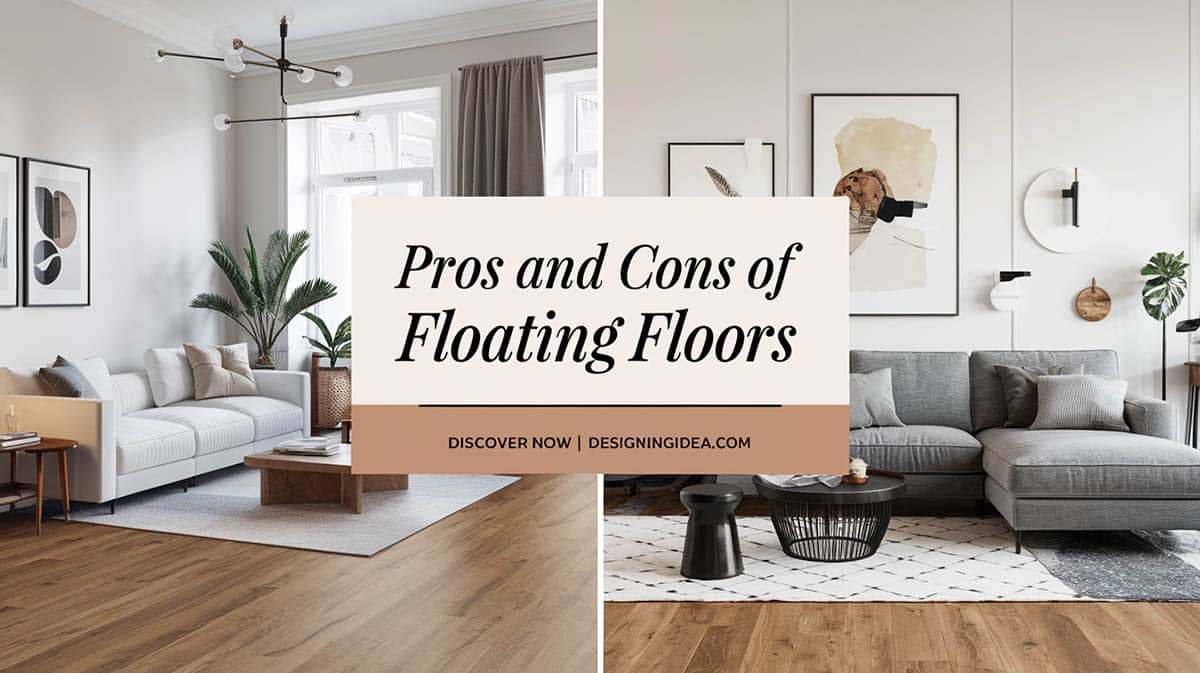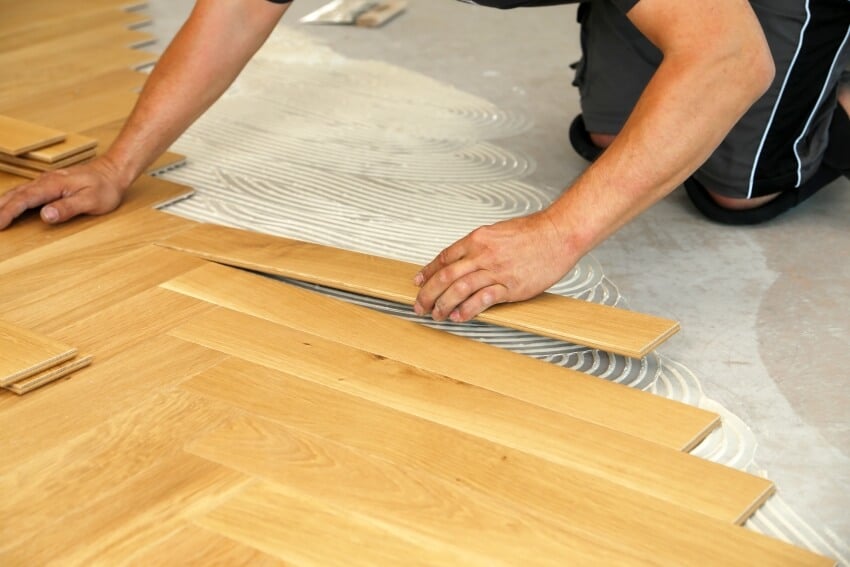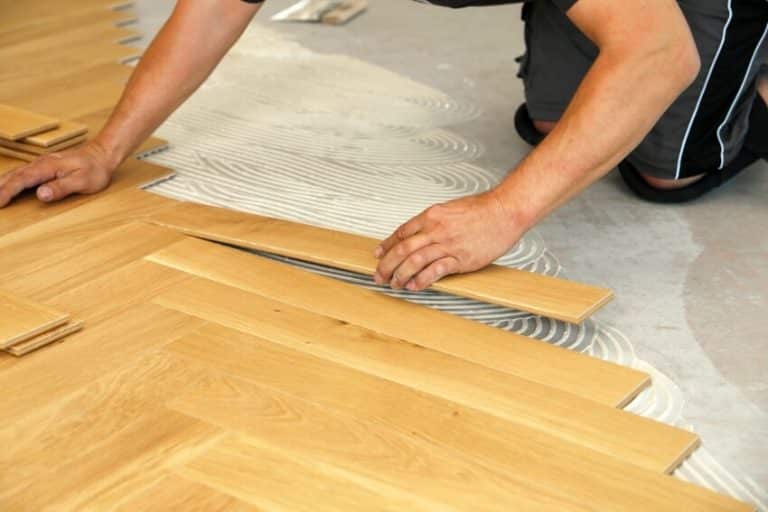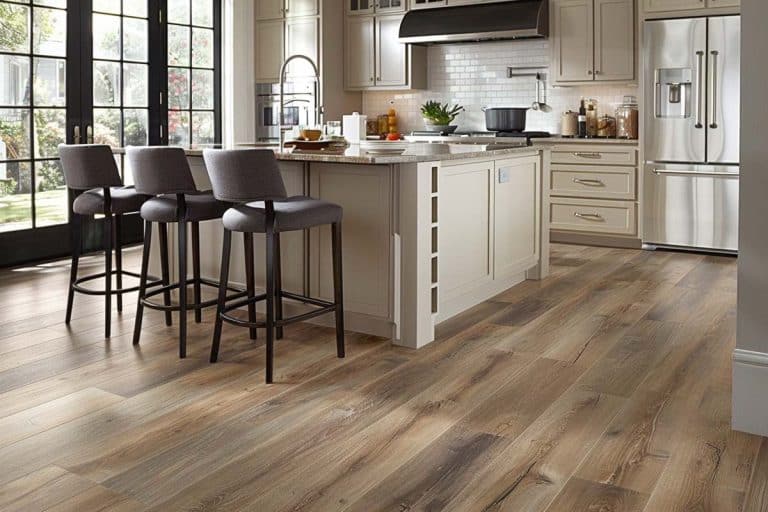What Are the Pros and Cons of Floating Floors, and Are They Worth It?

Floating floors have become increasingly popular in modern homes, but will they be a good fit for your home? Identifying their pros and cons may help you decide the answer to that.
Pros Of Using Floating Floors
If you’re exploring this kind of flooring as an option for your home, here are the benefits you can expect to enjoy.
• Easier Installation & Replacement – Using floating flooring is perfect for DIY projects with its intuitive click-and-lock system. This makes it popular for its simple installation process, requiring less labor and the use of special tools. This also means that damaged pieces can easily be replaced without affecting the entire floor.
• DIY-friendly – With its easy installation, you can do the project yourself by simply lining them up, connecting them together, and laying them over the subfloor.
• More Affordable & Cost-effective – This flooring type has less installation cost, making it the more affordable option. And since it’s DIY-friendly, you won’t need to hire anyone for the job, lessening the cost and making it perfect for those with a low budget. There is no need for expensive adhesives or specialized fasteners making it an excellent option for budget-conscious homeowners.
• Highly Flexible In Function – The flooring process accommodates natural expansion and contraction due to humidity changes. You can use different materials for your floating floor as long as they are compatible with the process. So sure matches are laminate and vinyl and engineered wood.
• Can Install Over Existing Floor – Can be installed over most existing floors, saving removal costs and time.
• Provides Room To Expand – Since floors tend to expand or contract depending on the change in humidity, this flooring option give room to accommodate these changes.
• Convenient Access To The Subfloor – With the installation’s low impact on the subfloor, you can conveniently access the area without any fuss whenever you need to.

Cons Of Using Floating Style Flooring
Along with the pros you can enjoy, you also would need to take into account the cons that come with it. Here are several that are worth taking note of.
• Limited Materials – With floating floors, you can only use specific materials compatible with its installation process and it’s not just limited in the options of the materials themselves but also in their quality. Accordingly, it may need replacement sooner than permanently installed flooring
• Lowers Resale Value – Unlike other flooring (like hardwood flooring) that can add value to your home, these flooring is not a good investment to consider since you won’t get as much value with it If you choose to resell your home.
• Requires Meticulous Subfloor Preparation – When the subfloor is not prepared perfectly, the floating flooring can feel loud and hollowed underfoot (which would not happen with nailed-down or glued flooring) Proper moisture barrier installation is crucial to prevent problems, especially in wet areas like kitchens and bathrooms.
• Not Good For High Traffic Areas With Constant Movement – Constant movement can make these floors look unstable and even creak. As such it may require perfectly level subfloor for optimal performance.
Are These Floors Worth It?

Are floating floors truly worth it for your home? The answer depends largely on your specific needs and priorities. If you’re on a tight timeline or budget, floating floors can be a great solution. They allow do-it-yourselfers to transform a space quickly without expensive installation costs. The materials themselves range from $3-7 per square foot, delivering 40-60% savings compared to traditional floor options. Floating floors are also recommended for rental units, temporary living situations, or spaces prone to humidity changes where access to the subfloor may be needed down the road.
However, floating floors are best suited for short to medium-term flooring solutions in the 5-10 year range. They may not provide the premium finishes or maximum durability required for luxury home builds, high-traffic commercial spaces, or properties being prepared for resale. Over time, replacement needs are higher compared to traditional flooring.
The bottom line? If your top priority is installation ease, speed, flexibility, and initial cost savings, floating floors present an attractive option. But if you require maximum durability for the long haul, seek to enhance property value, or want a show-stopping aesthetic statement, alternative flooring choices may better meet your needs.






